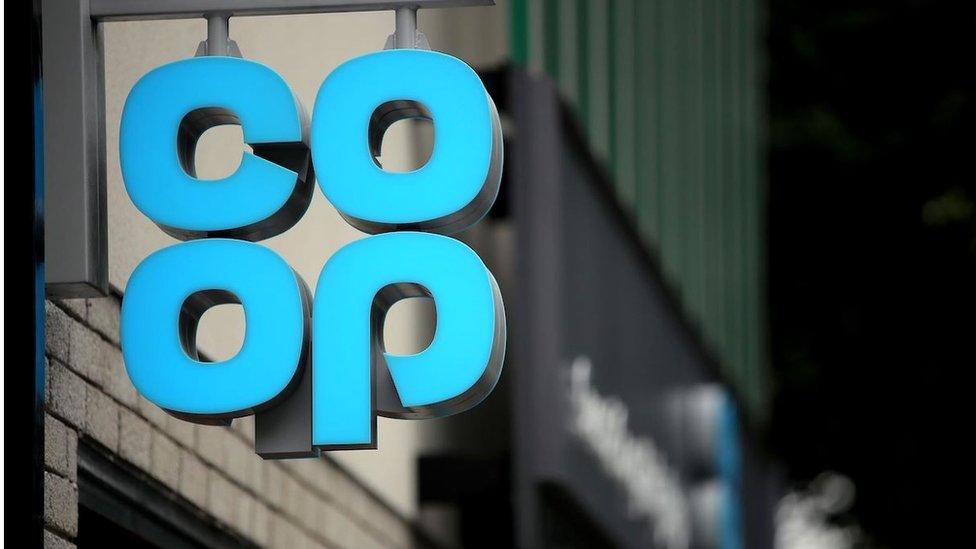Why do steaks have to be security tagged?
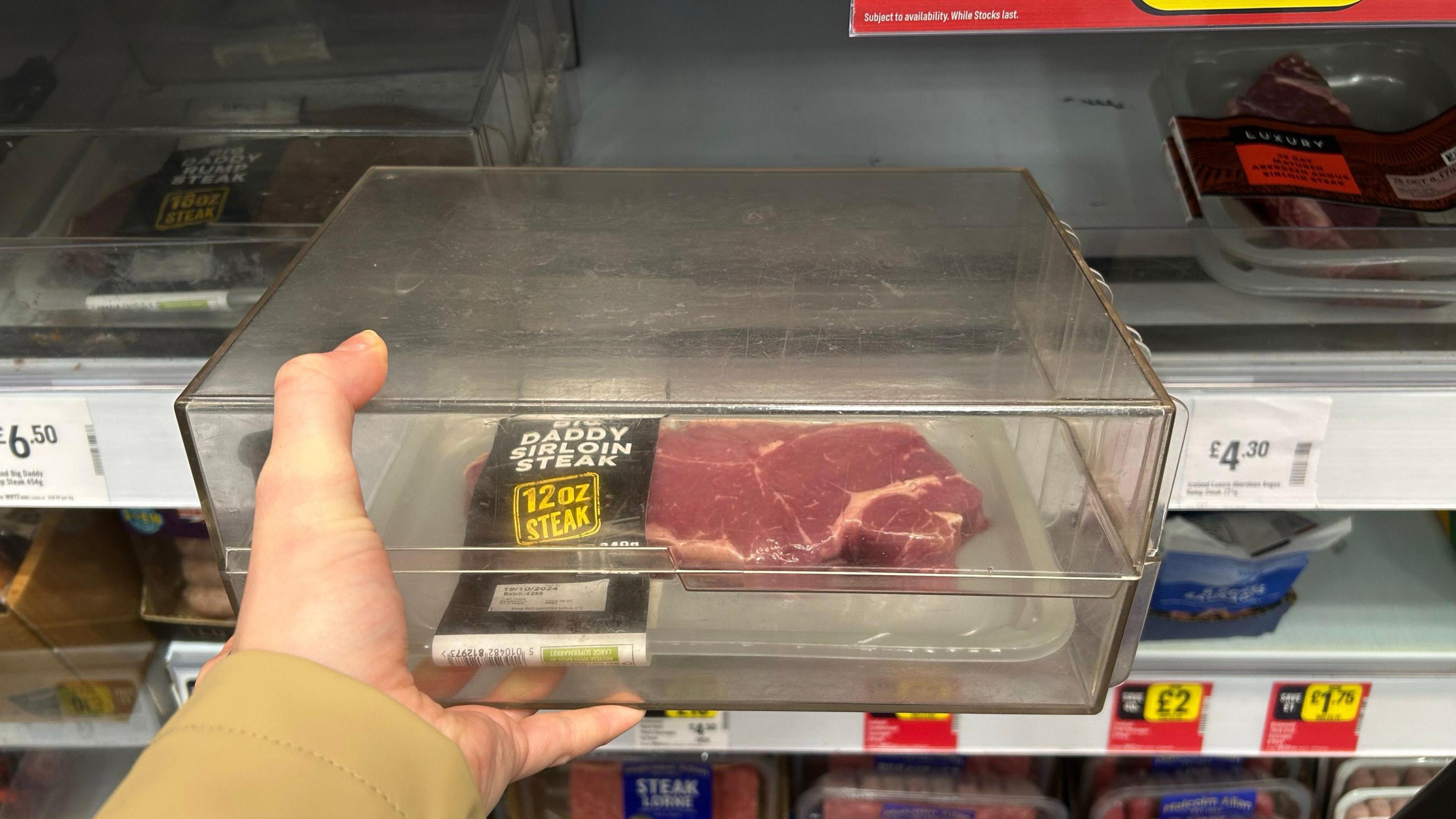
Iceland in Clydebank lock up their steaks to try to deter shoplifters
- Published
When Mark Dallas posted a video on TikTok showing steaks locked up in a "security contraption" in a Scottish supermarket, the replies showed others were as baffled as him.
In the video, Dallas says: "I'll sleep easy tonight knowing the succulent sirloin steaks, priced at £6.50, are safe from the Clydebank steak bandit."
He told BBC Scotland that he felt it was "quite sad that society has got to the point that they feel they have to lock up steaks".
Measures like this have become common in shops across Scotland and hint at deeper issues with a rise in shoplifting.
So why do steaks have to be security tagged?
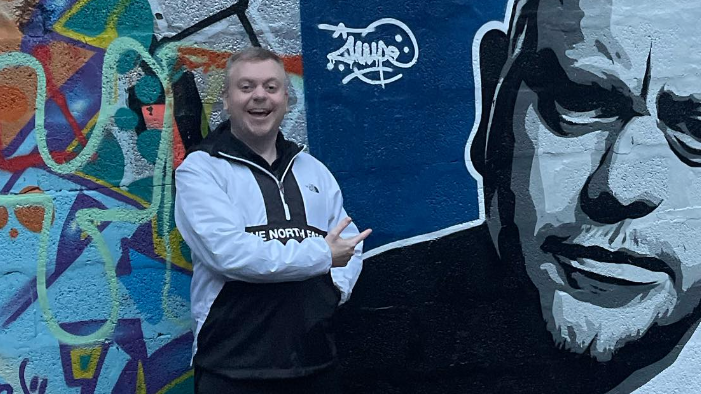
Mark Dallas said the steaks looked like they were on life support in incubators
TikToker Dallas filmed his video at the Iceland store in Clydebank's Clyde Centre.
The supermarket's media team did not want to comment on why security measures were needed for items such as steaks.
However, some of the store's staff were willing to speak as long as they were not named.
One explained that shoplifting expensive cuts of meat was common and the security tags and boxes made it harder for the thieves to get away with it.
Another worker said a lot of the shoplifters were regulars who came back time after time.
Other products that were often targeted included liquid washing pods, which the supermarket also puts in secure boxes.
The Iceland worker said one shoplifter had successfully stolen at least £600 worth of the pods.
"That's why it’s at the point now that they are in cases and only two can go out on the shelf at any one time,” she said.
Weekly loss reports help the workers identify which products are targeted the most.
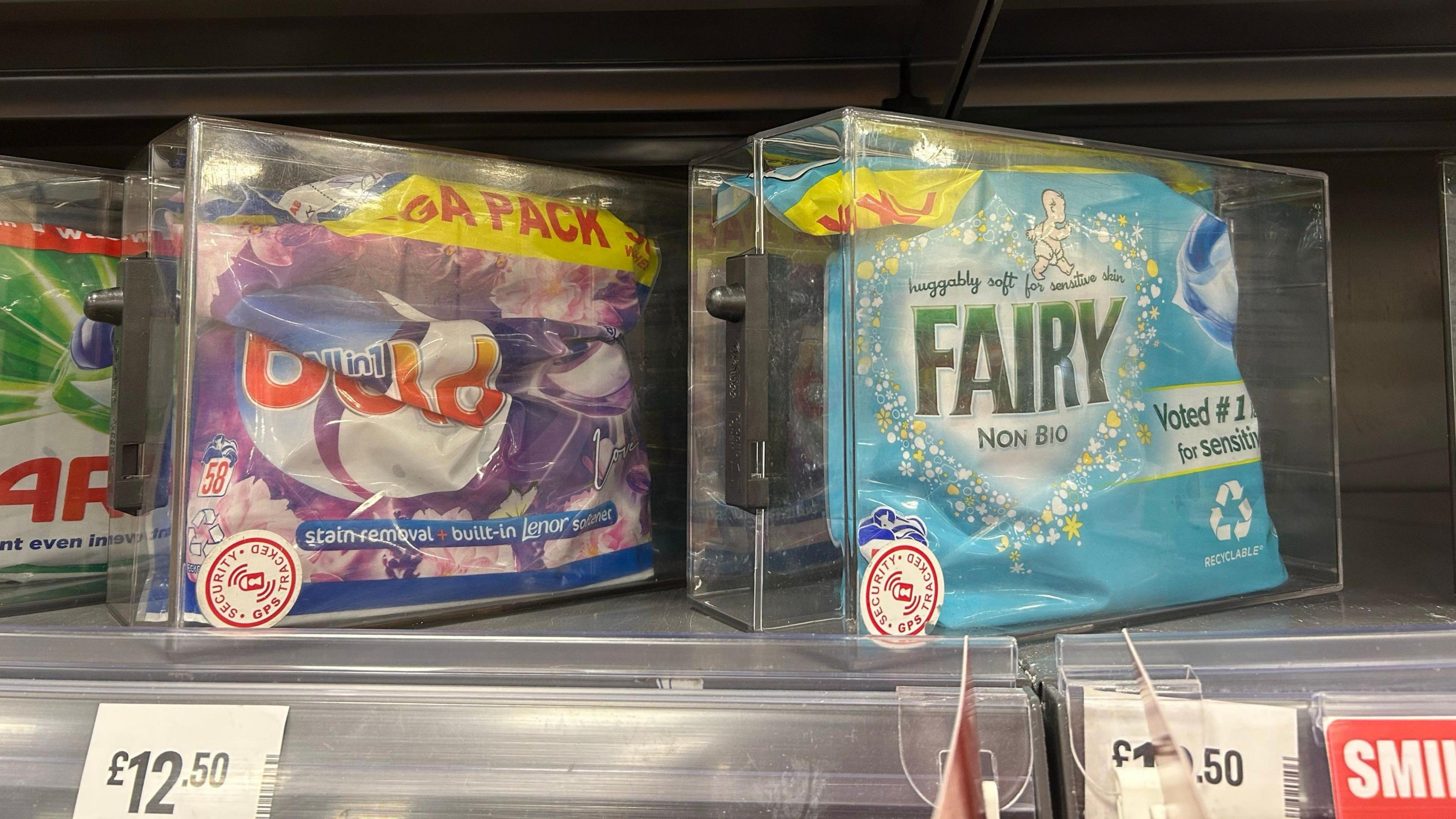
The items that tend to be locked in boxes are the ones shoplifters seem to be going for
Security measures like this are not just limited to Iceland.
Last year the the Co-op released CCTV footage showing masked men raiding a Scottish store.
Co-op boss Kate Graham warned that stores were descending into "anarchy" as staff faced a sharp rise in retail crime, including shoplifting to order.
A spokesperson for the company told BBC Scotland News that retail crime had reached its highest levels because of repeat offenders and local organised criminal gang attacks.
The store is concerned that it can often lead to violence and abuse towards shop workers when the incidents are challenged.
Many checkout staff and workers on the shop floor now wear body cameras as an extra precaution.
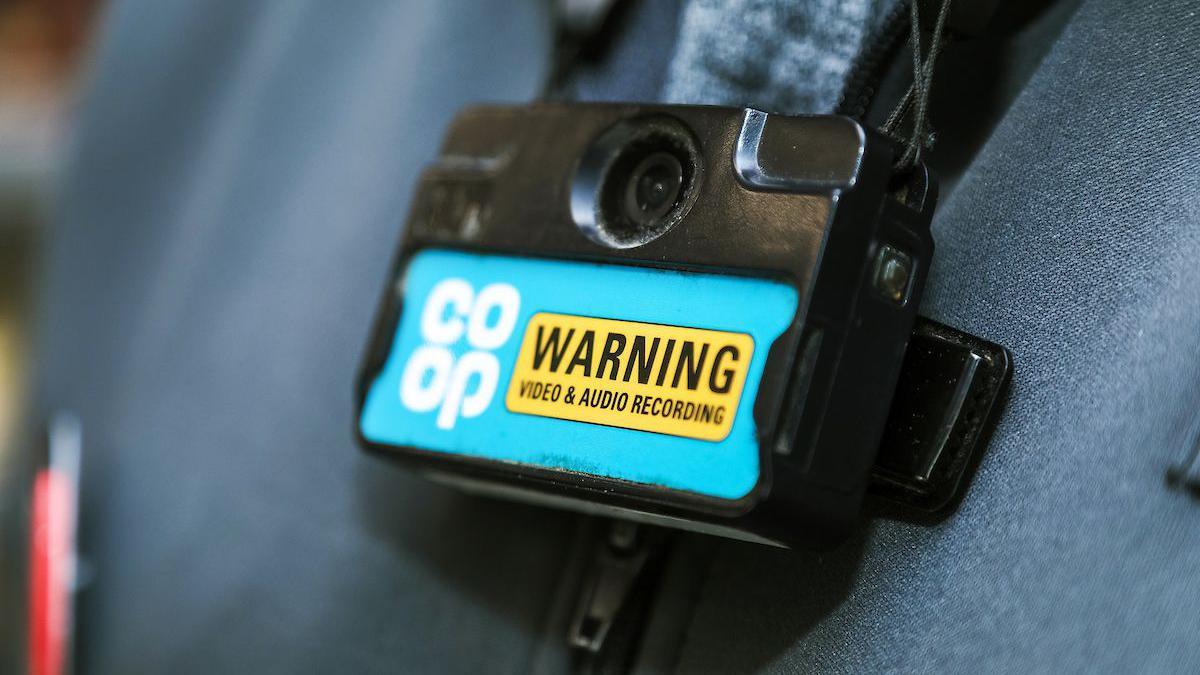
Many frontline Co-op staff wear body cameras
Workers at the Iceland store in Clydebank said they also wore body-cams.
“Most people don’t care because there are cameras all over the store," said one employee.
"The body-cams are audio and video recorded - but it doesn’t normally stop or deter anybody."
The Scottish Grocers' Federation said shops were experiencing a "tsunami" of shoplifting.
Spokesman Jamie Mackie said the rise did not happen overnight but had been made worse by the cost of living crisis.
Scottish Crime Statistics, external showed there had been a 41% increase in reported cases of shoplifting in the past 10 years.
However, the Scottish Grocers' Federation found, external that 76.7% of retailers were unlikely to report shoplifting because most believe nothing would happen afterwards.
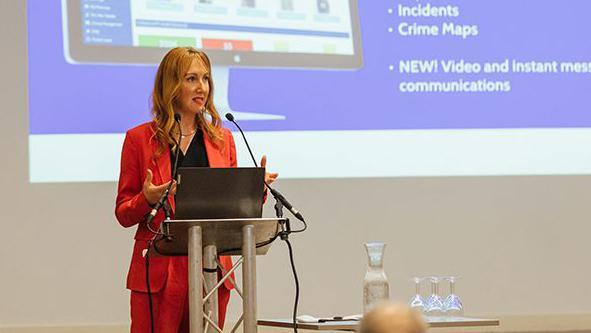
Stephanie Karté said shoplifting had been swept under the carpet for years
Stephanie Karté from Retailers Against Crime said: "Retail crime is at its highest because it has been getting swept under the carpet and has been for years.”
She said that all retail crimes should be reported to Police Scotland in order to identify the areas that need most support.
Ms Karté said retailers were hesitant to report every shoplifter because offenders often received small fines or community service.
The staff we spoke to at Iceland agreed, saying that shoplifters believed they could get away with it because they were not facing jail time.
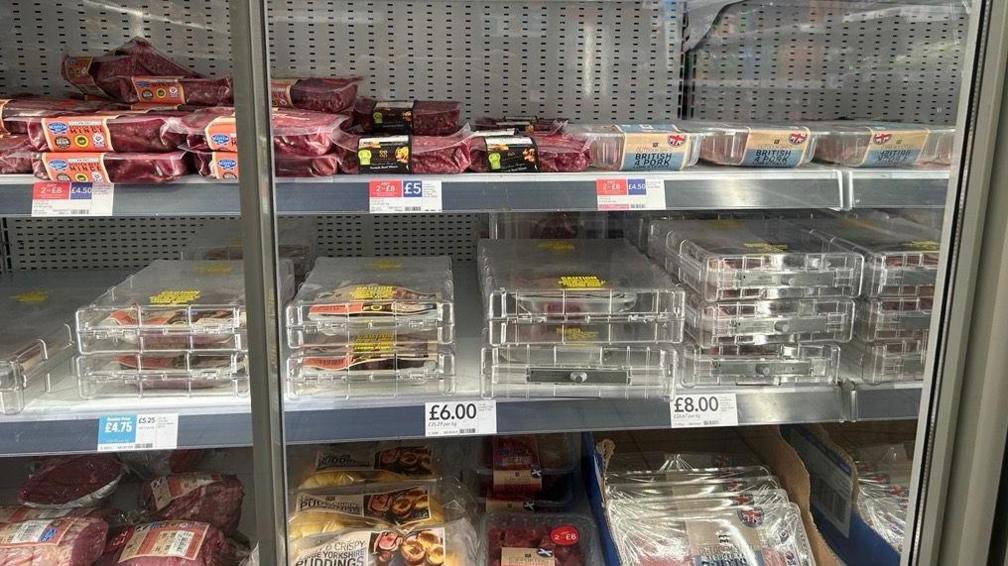
Shoplifting has risen since the pandemic and the cost of living crisis
Mr Mackie, from the Scottish Grocers' Federation, said the police did not have enough resources to respond to all retail crimes.
"We need to see more police officers in stores where they're needed," he said.
He also wants a simplified process for reporting incidents.
Organised crime is also thought to have played a part in the increase in shoplifting.
Mr Mackie said there could be an element of people stealing to order.
The Scottish Grocers' Federation has estimated the average cost of shoplifting is £12,164 per year for each store.
Mr Mackie said that number “shows that it is more than just steaks”.
Related topics
More like this
- Published16 October 2024
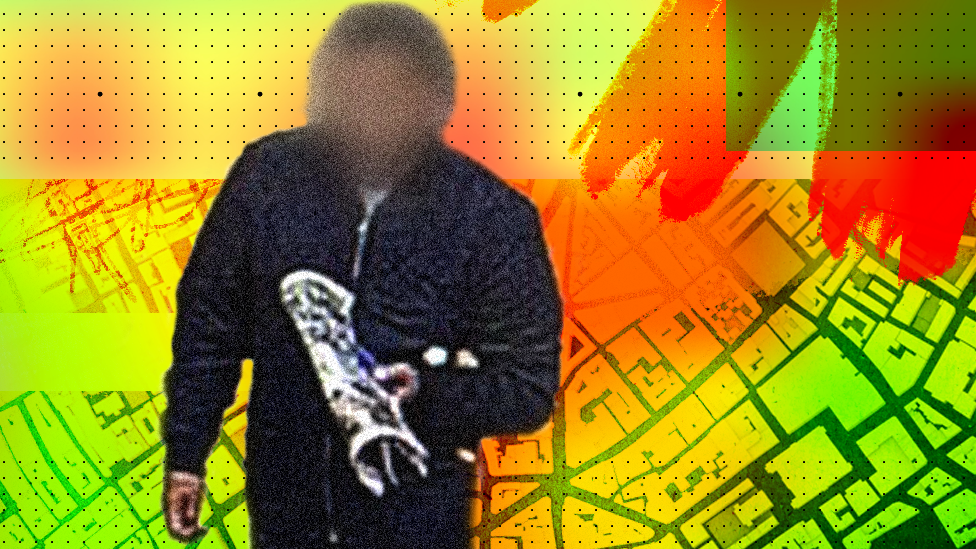
- Published15 October 2024
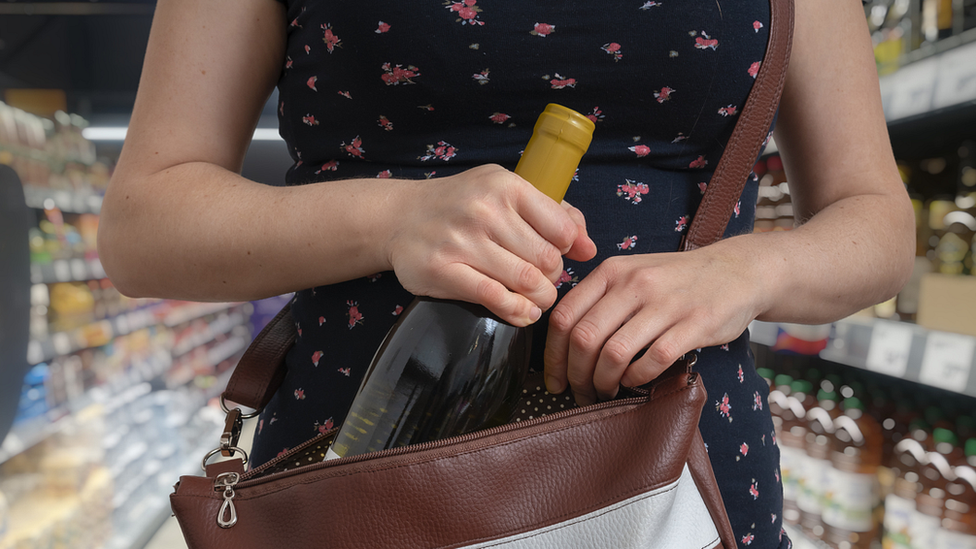
- Published21 September 2023
